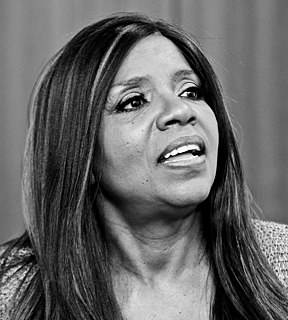A Quote by Ryan Holiday
Online journalism has always had a sourcing problem. From using unverified 'anonymous tips' to repeating whatever rumor or speculation people are chattering about, the general ethic is, 'We'll publish just about anything.'
Related Quotes
As a writer, I've always believed that while my work and I myself are embedded in whatever period I am writing about, clearly I am sensitive to the winds that are blowing in the culture. At the same time, I have always felt that the issue was not to deal with the problem in the abstract, but to deal with the people who are in that problem. The emphasis is on the people. The general problem begins to resolve itself even before the play is finished.
A big part of my book deals with the caliber of journalism. Our journalism in general is deplorable, and on elections in particular it's very ineffectual. There are a lot of problems, a lot of them having to do with to problems within the professional code of journalism, which defines its role as the regurgitation of what people in power say. Another big problem is that we allow people with money to basically buy what's talked about in campaigns through running TV ads.
From the dawn of exact knowledge to the present day, observation, experiment, and speculation have gone hand in hand; and, whenever science has halted or strayed from the right path, it has been, either because its votaries have been content with mere unverified or unverifiable speculation (and this is the commonest case, because observation and experiment are hard work, while speculation is amusing); or it has been, because the accumulation of details of observation has for a time excluded speculation.
Let me just say that anything that I say about what's going on at Justice is pure speculation. Obviously, you know, I'm just going based on my experience as the attorney general, but, yeah, surprised because typically you don't talk about investigations. And it kind of surprised me that that letter went out, and I suppose that the reason for it is because we're in the middle of a presidential campaign. But nonetheless, I think it would be contrary to typical protocol.
I think half the people who get married now have met online. If I think about all the people in my life who married - they met online, online, online. And it makes sense if you think about it, because you fill out this form of 35 things that really define you and - bam - look, you've got two people who match. It works.



































